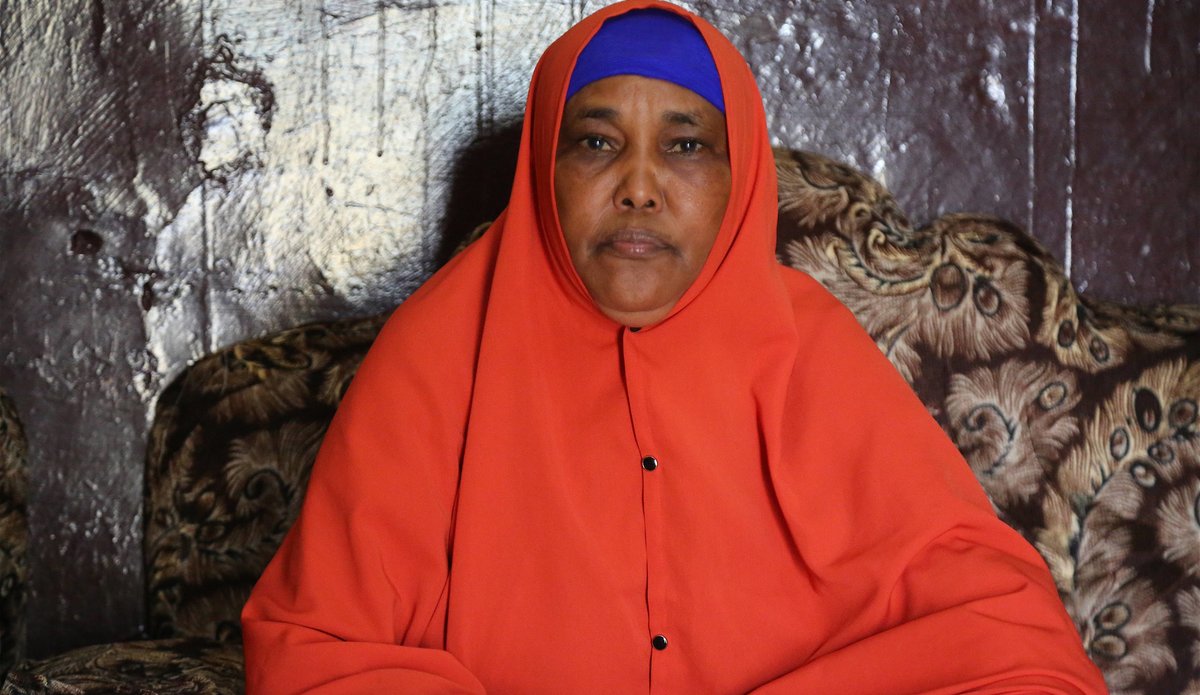Rising from the ashes of war: An activist’s unwavering pursuit of peace
Magaalo Muhumed Osman is a civil rights activist whose work has touched many lives in Belet Weyne in Somalia’s HirShabelle state.
In 2012 Magaalo founded an organization called Salbarwaqo, which means “rising from the bottom” in Somali, to cater for the growing needs of her community. She has become one of the most visible peace activists in the state through her promotion of dialogue and reconciliation.
Magaalo’s pursuit of peace stems from a desire to live in a world free of conflict.
“I have suffered so much during the war, I lost close relatives and friends. Our property was destroyed and we became displaced in our own country,” recalls the 40-year-old activist.
From her office in Belet Weyne, Magaalo works as a civil rights advocate to protect the rights of vulnerable populations, among them women, children and internally displaced persons (IDPs).
“I thought that creating and managing a civil society organization that works towards peace was impossible. But with encouragement from other people who are like-minded, I found the inspiration and courage to establish Salbarwaqo,” she says.
Today, Magaalo manages programmes geared towards mitigating the effects of conflict and relieving tension among communities. Her organization focuses on the improvement of their livelihoods, the delivery of education services and the reconciliation of warring factions.
“We have many achievements, including brokering peace between two close clans in Belet Weyne. The slogan we use to ensure that our message is taken seriously is ‘conflict does not give you a son, but it can take him away’. This message has resonated well with the warring clans,” Magaalo says.
To acknowledge the critical role women play in peacebuilding, Salbarwaqo has partnered with the Tallawadaag Women Movement, an umbrella organization championing women’s rights, to encourage the youth to actively participate in conflict resolution initiatives.
“To ensure our peacebuilding programmes succeed, we normally involve our strong network of individuals, among them cultural leaders, politicians and the youth. This has made it possible to reach different demographic groups to further the cause of peace,” she explains.
Magaalo acknowledges that it would have been difficult for Salbarwaqo to succeed, were it not for the strong support offered by various partners working to assist Somali IDPs. “The UN agencies have helped by donating food, clothing, shelter and medical supplies, and this has enabled us to effectively cater for those affected by conflict who seek refuge in Belet Weyne,” she states.
She singles out the United Nations Assistance Mission in Somalia (UNSOM) for being a strong ally of Salbarwaqo in peacebuilding. “I have received numerous trainings on governance and peace from UNSOM, and this has helped improve my knowledge on conflict resolution. I am indeed grateful for the level of support they have provided, be it in training or on the reconciliation process.”
Magaalo urges other organizations to work with the UN to obtain necessary support. “Inadequate funding is one of our main challenges. Awareness campaigns can change the situation for the better,” she concludes.
 UN
UN





